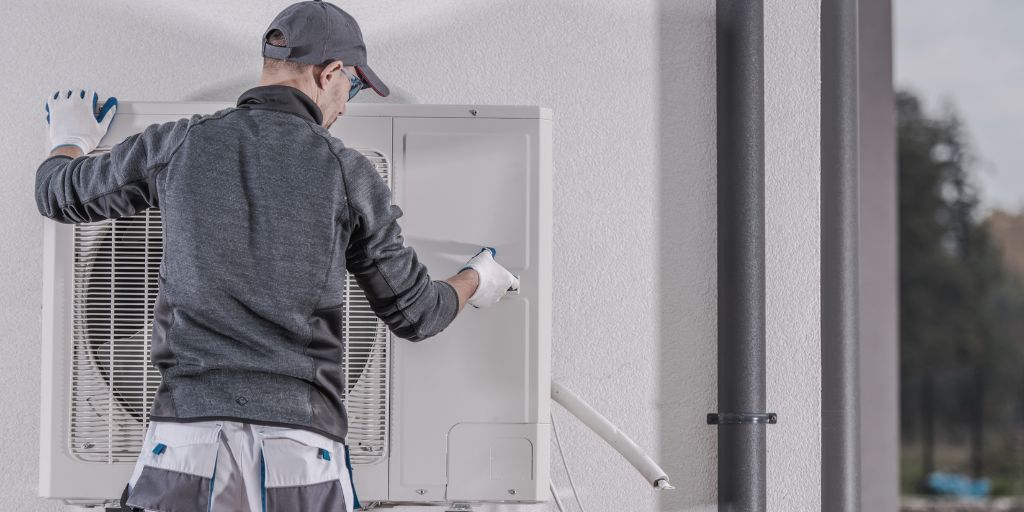
n the current climate crisis, UK small and medium-sized enterprises (SMEs) are increasingly turning to heat pumps as an eco-friendly solution for heating and cooling. Clade Engineering’s Chief Markets Officer, Tim Rook, acknowledges that many SME leaders are not well-versed in heat pump technology. In this piece, he explores various options, including advanced propane heat pumps, providing comprehensive advice for SMEs on their path to reducing carbon emissions.
The Urgency of Decarbonisation
With the UK’s aim to reach net-zero carbon emissions by 2050, SMEs face a significant responsibility in diminishing their environmental footprint. Heat pumps are becoming a key element in this shift, offering a greener alternative to traditional heating methods.
Sales of heat pumps have seen a remarkable increase in the UK, with 2021 witnessing a near doubling to 55,000 units sold. The government is keen to maintain this momentum; the 2022 Energy Security Bill aims for an annual installation of 600,000 heat pumps by 2028. Furthermore, the Heat and Buildings Strategy seeks to slash heat pump costs by 25-50% by 2025, aiming for cost parity with boilers by 2030.
For widespread adoption, understanding the available solutions and identifying the most suitable one for each business is crucial.
Diverse Heat Pump Options
Despite the growing market, challenges such as limited knowledge and high initial costs remain. Energy retailers are in a strong position to educate consumers and offer customised financial plans to boost adoption. The UK Business Climate Hub is another valuable resource for information and support.
When considering the best heat pump for your enterprise, several types are available, each with unique features:
Air Source Heat Pumps (ASHPs): Known for their cost-effectiveness and ease of installation, ASHPs are ideal for retrofitting existing structures. They typically cost between £7,000 and £13,000 and can save up to £1,500 annually on heating bills. While less effective in extreme cold, they suit the UK’s moderate climate well.
Ground Source Heat Pumps (GSHPs): Priced between £24,000 and £49,000, GSHPs require more space and initial investment but offer higher efficiency (CoP of 4.8) and substantial annual CO2 savings. They are a beneficial long-term investment, particularly in shared-loop heat networks.
Water Source Heat Pumps (WSHPs): Ideal for businesses near water bodies, WSHPs, with a high CoP of around 6, can yield annual savings of £395-£2000. They offer efficiency comparable to GSHPs but require water access and can involve complex installations.
Hybrid Heat Pumps: These combine a standard heat pump with a fossil fuel boiler, suitable for properties with high heating demands, adjusting operations based on energy costs. They are effective in large, less insulated buildings.
Propane Heat Pumps: Using eco-friendly R290 refrigerant, these pumps are apt for businesses focusing on minimal environmental impact. They provide efficient heating and cooling with low Global Warming Potential and are adaptable for various applications, aligning with sustainability standards and future regulations.
Selecting the Right Heat Pump
When choosing an appropriate heat pump for your SME, consider the following key factors:
Space Requirements: The choice of ASHP, GSHP, WSHP, or propane heat pumps greatly depends on the available space, with ASHPs being more suitable for limited areas.
Energy Efficiency: Efficiency is essential for cost-effectiveness and performance, with propane heat pumps notable for their high COP values.
Investment Costs: Initial expenses range from £8,000 to £45,000, varying with the type and complexity of installation. ASHPs are more affordable upfront, but GSHPs and WSHPs may offer better long-term savings due to their efficiency.
Government Incentives: Schemes like the Renewable Heat Incentive (RHI) and the Boiler Upgrade Scheme are vital in making sustainable heating technologies accessible.
Environmental Considerations: Opt for systems with lower carbon emissions to align with decarbonization objectives. The environmental impact of your heating system is a key factor, especially given the UK’s net-zero targets.
In Summary
Heat pumps play a vital role in the UK’s strategy for reducing carbon emissions, particularly for SMEs. Understanding the different types, their efficiencies, costs, and available incentives is vital for business owners to make informed decisions. With government initiatives and the growing market trend, SMEs are well-advised to seek expert advice and use available resources to choose the most suitable heat pump for their needs. This approach will not only benefit the business but also contribute to the nation’s Net Zero emission goals.













